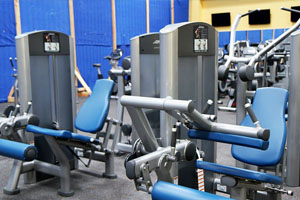Discover the advantages of morning and evening runs Learn when to run for your fitness goals Explore expert opinions on the best time for your daily run
One of the most common debates in the world of running is whether it's more advantageous to hit the pavement in the early morning or the serene hours of the evening. Each option has its loyal proponents, with claims of unique benefits. However, the best time to run ultimately depends on your goals, schedule, and personal preferences. In this article, we'll explore the advantages and considerations of morning and evening runs, helping you make an informed choice that aligns with your fitness journey.

Choosing the Right Time for Running
When it comes to incorporating running into your daily routine, one of the key decisions you need to make is choosing the right time for your runs. The timing of your run can have a significant impact on your performance, motivation, and overall experience. While there is no one-size-fits-all answer to the question of whether it's better to run in the morning or evening, there are various factors to consider when making this decision.
Benefits of Morning Runs
Running in the morning offers a multitude of benefits that can positively impact your physical and mental well-being. Here are some compelling reasons to consider lacing up your running shoes in the early hours:
- Boost in Metabolism: Morning runs can kickstart your metabolism and help you burn calories more efficiently throughout the day.
- Enhanced Mood: Running releases endorphins, which can improve your mood and reduce stress, setting a positive tone for the day.
- Cleaner Air: The air quality is often better in the morning, providing fresher air for your run compared to the pollution of the day.
- Consistency: Establishing a morning running routine can help ensure you're consistent with your exercise regimen.
- Increased Energy: Morning runs can provide an energy boost, helping you feel more awake and alert for the day ahead.
These benefits make morning runs an appealing option for those looking to maximize the impact of their exercise routine.
Benefits of Evening Runs
Running in the evening offers several advantages that cater to different preferences and lifestyles. Consider these benefits when planning your running schedule for the evening:
- Reduced Heat: Evening runs can provide relief from the heat of the day, ensuring a more comfortable running experience.
- Improved Performance: Body temperature and muscle flexibility tend to be higher in the evening, potentially leading to better running performance.
- Stress Reduction: Running in the evening can be an excellent way to unwind and reduce stress after a long day's work.
- Social Opportunities: Evening runs often coincide with group running activities and social running clubs, fostering a sense of community.
- Flexibility: Evening runs can fit well with many work schedules, offering more flexibility for those with daytime commitments.
Choosing to run in the evening can provide a different set of benefits and might be the ideal option for individuals who prefer cooler temperatures and social interaction.
Factors to Consider
When deciding whether to run in the morning or evening, several factors come into play. Keep these considerations in mind to make the best choice for your running routine:
- Temperature and Weather: Think about your local climate and weather conditions. Running in the evening might be more comfortable in hot regions while morning runs could be preferable during cold seasons.
- Scheduling: Evaluate your daily schedule and commitments. Choose the time that aligns with your work, family, and social life without causing conflicts or excessive stress.
- Personal Performance: Some individuals find that their body and muscles perform better at specific times. Experiment with both morning and evening runs to identify your peak performance period.
- Safety: Consider the safety aspects of your running time, including visibility, traffic, and the risk of accidents. Ensure you have proper lighting and reflective gear for evening runs.
- Sleep and Recovery: Take into account the impact of running on your sleep and recovery. Running too close to bedtime might disrupt your sleep cycle.
Ultimately, the choice between morning and evening runs depends on your preferences, lifestyle, and personal circumstances. What's most important is staying consistent with your running routine to achieve your fitness goals.
Expert Opinions on Running Timing
Experts in the field of sports and fitness have varying opinions on the best time to run. While the choice between morning and evening running ultimately depends on individual preferences, here are some insights from professionals:
- Morning Running: Many experts highlight the benefits of morning runs. Running in the morning can kickstart your metabolism, boost your energy levels, and enhance your mood for the day. It's often recommended for those who want to develop a consistent routine or prioritize their fitness.
- Evening Running: Some experts emphasize the advantages of evening runs. In the evening, your body is typically more warmed up, and your physical performance might be at its peak. It can also serve as an excellent stress-reliever after a long day.
- Individual Variation: Experts stress that everyone's body has its own circadian rhythm and responds differently to exercise at different times. Therefore, there's no one-size-fits-all answer. It's essential to consider your personal energy levels, workout goals, and daily schedule when making your choice.
In essence, the consensus among experts is that consistency and individual preference should guide your decision. The best time to run is the time that you can commit to regularly and enjoy, as this will help you achieve your fitness goals.
Frequently Asked Questions (FAQs) about Running Timing
Q1: Is morning running better for weight loss?
A1: Morning runs can help with weight loss by jumpstarting your metabolism and allowing you to burn more calories throughout the day. However, the most crucial factor is consistency, so choose the time that suits your routine best.
Q2: Are there any benefits to evening running?
A2: Evening runs offer benefits like increased performance due to warmer muscles and the potential for stress relief. Your body's rhythm plays a significant role, so consider what aligns with your personal preferences and goals.
Q3: Which is the best time for a beginner to start running?
A3: For beginners, it often depends on personal energy levels and preferences. Many find morning runs easier to commit to, while evenings might be suitable for those who have more time and energy after work.
Q4: Can the time of day impact my running performance?
A4: Yes, it can. Research indicates that body temperature, muscle flexibility, and endurance tend to be higher in the late afternoon or early evening. However, this may vary from person to person.
Q5: Is it essential to run at the same time every day?
A5: Consistency is more crucial than the specific time. Running at the same time each day helps establish a routine, which can lead to more significant long-term benefits. However, adjust your schedule to your lifestyle as needed.










